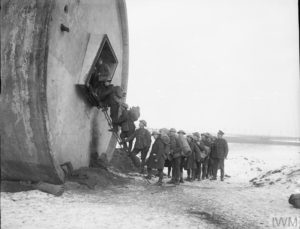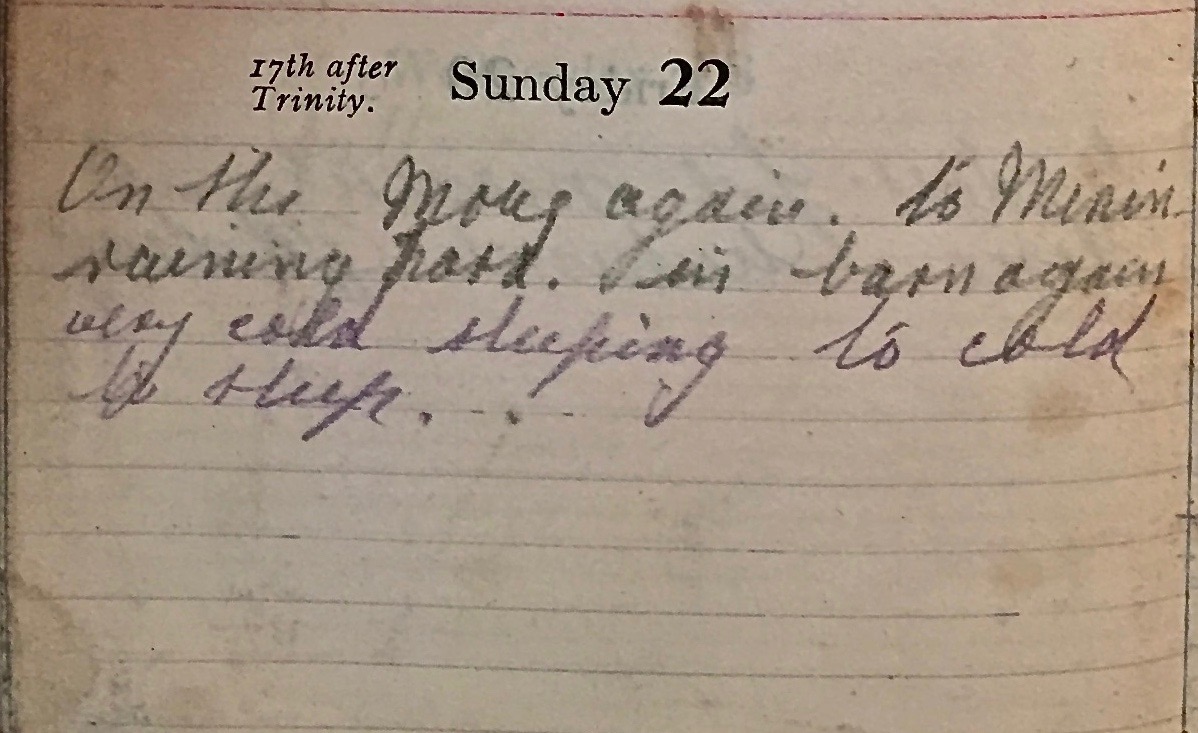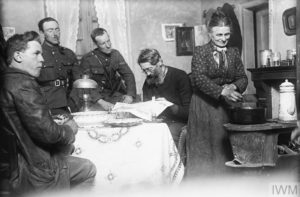Sunday September 22nd, 1918
On the move again to Manin. Raining hard. In barn again. Very cold sleeping – too cold to sleep.
Billets

Frank is once again billeted in a barn. He finds the billet very cold and difficult to sleep in.
A similar experience was described by Lance Corporal Frederick G. Woodhams of 13 London Rifles, 1383. He wrote to his family in February 1916: ‘We are billeted in a barn and have a sea of mud to get through. We have no boards, so sleep on the ground, fires are not allowed in the billet and at night time it’s devilish cold.’²
These experiences reinforce a comment made by CQMS Harry Drake, ‘Any bed before a barn was a working motto in those bitter days’. Drake, who had enlisted in September, 1914 in the 16th West Yorks Regiment, was able to speak French. As such he was often sent out as a member of a billeting party – tasked with finding billets for the Battalion – to the villages of France in 1916/17.¹
I wonder what Frank or the others would have thought about the billet in the photograph. This shows gunners of the Royal Artillery entering their billet – a collapsed water tower – at Riencourt near Bapaume in January 1918.
Life in the Rear Area
9th Battalion War Diary – 22nd September 1918 – Penin /Manin
Operation Order No 2 (Appendix No 5) issued. The Battalion marched to Manin, billets were taken over from 6th Lancs Fus. 9th Gloucester Regiment took over Battalions billets at Penin. Capt. P Darlington MC returned from leave to UK.
References & Further Reading
¹ ‘Memoirs & Diaries – in a Billet‘ on First World War site
² ‘Letters from the First World War‘ National Archives
³ ‘Rear Area on the Western Front‘ International Encyclopedia of WWI
* Q 8393, copyright Imperial War Museums
^ Q 1900, copyright Imperial War Museums




2 thoughts on “Billets – September 22nd, 1918”
Comments are closed.